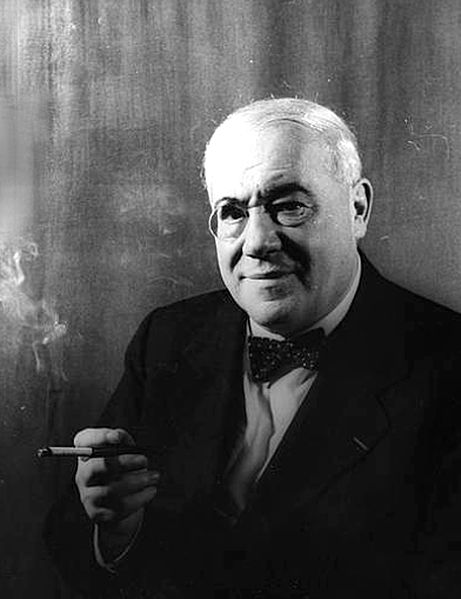Hungarian litterateur Ferenc Molnár is regarded as the most controversial writer of his time. He’s probably the most well-known Hungarian playwright in the world, and his comedies are put on stage over and over again both in Hungary and abroad; however, his satirical prose has faded away over the years.
The Hungarian playwright was born 142 years ago.
Ferenc Molnár (originally Ferenc Neumann) was born into an upper middle class family in Budapest on 12 January 1878. After graduating from Lónyai Utca Reformed High School in 1895, his parents convinced him to study law in Geneva, but he turned his back on his university studies at 22 to realize his literary pursuits. He started to publish his writings in different Budapest-based newspapers, devote time to work on his novels and plays, and translate plays. His very first novel (The Derelict Boat, 1901) already bore the signature characteristics of his style: his witty remark, unique humour, and ingenuity. Literary critics had high hopes on Molnár who showed great promise as a novelist.
A few years later, he fulfilled the high expectations of litterateurs: he was only 29 when he wrote the fair copy of The Paul Street Boys (1906), today known as one of the most remarkable pieces of juvenile literature in the world. The novel follows the adventures of schoolboys in Budapest’s District VIII in 1889, who gather to spend their free time at the so-called grund, an empty lot which they consider their “Fatherland”. When the boys find out about the “Redshirts” (another boy gang from the neighbourhood) intention to take over the grund, they prepare to defend their playground. The Paul Street Boys, however, means much more today than an ordinary piece of juvenile literature: it is the ultimate story of Budapest children at the turn of the 19th century, as well as the humorous and sentimental depiction of distinct boy types. In fact, the main characters show such typical behaviour patterns that their names are often used today to describe certain types of people. For example, if we said “he’s like Ernő Nemecsek”, we would actually mean that he’s sensitive, polite and humble, but much braver than one would think.
The main works of Ferenc Molnár
- The Paul Street Boys (1906)
- The Devil (1907)
- Liliom (1909)
- The Guardsman (1910)
- The Play’s the Thing (1926)
- The Good Fairy (1930)
In his novels, Ferenc Molnár managed to give a realistic overview of the everyday life of the middle classes, the moral decay of the youth, and the struggles the poor needed to face in the early 20th century in Budapest. His plays, however, distracted attention from his fiction and quickly became the subject of debate.
As a playwright, Molnár used the triggers of emotional manipulation very consciously in the theatre: he was inspired by the works of international talents like Wilde, Schnitzler, Maeterlinck and Bernstein, and always merged what he had learnt into his signature comedies. Many of his plays (e.g.: The Devil, 1907, Liliom, 1909) revolve around the lies of the middle classes which he condemned with a great deal of understanding and wit. It is probably The Guardsman (1910) that expresses the main message of Molnár’s plays: the truth is intertwined with lies in a way that no one knows what’s right and wrong. The success of his first plays turned his head: Molnár started to focus on meeting the demand of the public that wanted no other than entertainment.
When the Nazism began to reach Hungary, he fled to France first, then moved to Switzerland, and eventually settled in New York, USA. He spent the last years of his life in deep depression, and as he was detached from his main source of inspiration, the middle classes of Budapest, he wrote stories of no importance. He died of cancer at the age of 74 in New York City.







